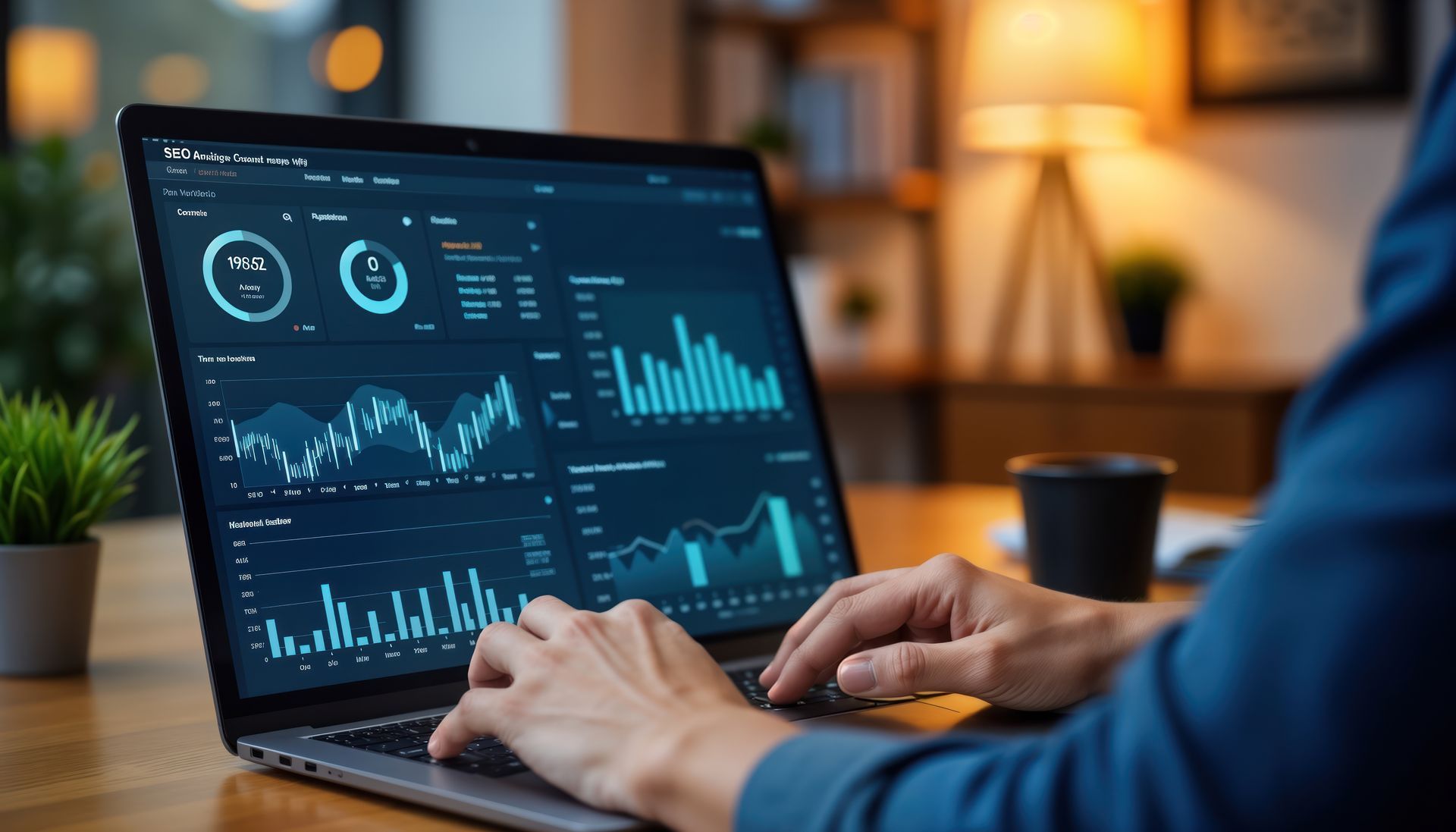10 Shopify SEO Tips to Rank Your Website
10 Shopify SEO tips to rank your website
Are you looking to boost your Shopify website’s SEO? SEO can help your website get found by potential customers and increase online sales. Here are 10 essential Shopify SEO tips you should know.

-
Tip 1: Optimise Titles & Descriptions
Having a well-optimised website is critical for any business, especially eCommerce sites. One of the most important SEO tips to keep in mind when optimising your Shopify site is to optimise titles and descriptions.
Title tags provide search engines with a concise description of what users can expect from a given page. They should be unique and accurately describe the content on each page while including one or two relevant keywords. Additionally, meta descriptions are short summaries used by search engines to illustrate what appears in their SERP (Search Engine Results Page). When crafting meta descriptions, create compelling copy that entices readers to click through as it will help boost organic traffic to your site.
-
Tip 2: Improve Site Speed
According to research, page speed is one of the most important factors for SEO success, as it affects both user experience and overall search engine rankings. The key to improving page speed is to reduce the size of your webpages by optimising images and compressing code. You can also leverage browser caching techniques to help pages load quicker for repeat visitors. Additionally, reducing redirects on your website will also help shave off some seconds from loading time. As a bonus tip for Shopify users, make sure that you take advantage of their app store plugins to optimise elements such as images, videos, and scripts - all without any HTML or coding knowledge!
-
Tip 3: Use Alt Tags
When it comes to Shopify SEO, one of the often-forgotten aspects is using alt tags for images. Alt tags are important for helping search engines understand what is in an image, as well as providing a text alternative if an image fails to load properly. By adding relevant alt text to your images, you can improve your ranking in search engine results pages (SERPs).
Alt tags should include words that accurately describe the image and its content. For example, when including a product photo on your Shopify store, an appropriate alt tag might be "blue t-shirt with pocket". Not only does this provide valuable information about the image itself but also adds keywords related to your product. As such, it's important to use descriptive words that relate to what you're selling.
-
Tip 4: Utilise Structured Data
Structured data is the key to successfully ranking your website on Shopify. By structuring your content and providing structured data on your pages, you can make sure that Google understands what it's seeing and can properly index your website for search engine results. Structured data also helps Google understand how relevant a page or product is to a user's query and makes sure that any potential customer looking at your page knows exactly what they are getting.
It’s essential to use schema markup language like Schema.org when creating structured data, as it provides an industry standard syntax that allows Google to quickly understand the context of a page or post. This makes sure that any changes you make in terms of content will be reflected accurately in search results, ensuring customers have access to the most up-to-date information about products or services available from your store.
-
Tip 5: Leverage Internal Links
A well-structured website is essential for Shopify SEO, and leveraging internal links is one way to help your site rank higher in search engine results. Internal links are those that link from one page of your website to another. This practice helps with SEO by increasing the amount of time visitors spend on your website, reducing bounce rate, and improving overall user experience.
Including internal links on relevant pages helps search engines understand how your site is structured, allowing them to more easily crawl through all of its content. Additionally, including internal links will lead visitors to other pages within your site so they can explore more content that may interest them. When done strategically and properly, this can result in a higher average time spent on the page as well as increased traffic to other parts of the site.
-
Tip 6: Create Quality Content
Creating quality content is an essential aspect of successful SEO and should not be overlooked. Quality content should not only be informative, but also engaging and well-crafted. Creating quality content that connects with your audience will help you to stand out from the competition.
When creating content for your website, focus on building trust with customers by providing them with relatable and useful information. Additionally, make sure to include relevant keywords throughout the page so that your webpage ranks better in organic search results. Crafting quality content takes time and effort but it’s worth it when you see the positive results reflected in traffic growth and sales conversions! Make sure you keep up a consistent schedule for new posts or updates so that customers stay interested in what you have to offer.
-
Tip 7: Monitor Mobile Rankings
When it comes to Shopify SEO, Tip 7 is all about monitoring mobile rankings. With more and more shoppers using their mobile devices to shop online, understanding how your website appears in search engines on those devices can give you an edge. Taking the time to monitor mobile rankings will help you stay ahead of the competition by allowing you to understand how potential customers are viewing your website.
For starters, take a look at SERPs (search engine results page) when viewing from different types of mobile devices. This includes smartphones, tablets and other portable computing items like laptops or netbooks. Be sure you’re looking at both organic results as well as paid ads that may be appearing for your keywords - this will give you a better idea of what potential customers are seeing when they search for products similar to yours.
-
Tip 8: Target Long Tail Keywords
Long tail keywords are words or phrases that are more specific and usually longer than regular keywords. This type of keyword is a great way to target customers who really want what you have to offer.
Using long tail keywords in your Shopify website can help you rank better for more specific search queries and attract quality leads with higher conversion potential. These types of keywords also tend to have less competition, meaning you’ll be able to get better visibility for them with less effort than for broader search terms. It’s important to research long tail keywords related to your products or services so you can optimise your content accordingly and ensure you appear in relevant searches by potential customers.
-
Tip 9: Perform Competitor Analysis
Competitor analysis is an important step when it comes to optimising your Shopify store’s SEO. It helps you understand what your competitors are doing, and how you can use that information to improve your own website’s ranking.
Start by identifying key players in your market or niche; these are usually the businesses that rank highest for relevant keywords. Take note of their website structure, content strategy and on-page SEO techniques so you can tailor yours accordingly. Additionally, take a look at their backlinks and see if there are any opportunities to build links from similar websites yourself. Lastly, consider their social media presence; do they have high engagement rates? How often do they post?
-
Tip 10: Use Google Search Console
Google Search Console is an essential tool for any website owner, and Shopify websites are no exception. This free service from Google allows users to monitor their search performance and lists the keywords used by visitors to find the website. With these insights, you can adjust and optimise your content to rank higher in search engine results pages (SERPs).
Optimising your Shopify SEO strategy
SEO is an important part of running a successful Shopify business. It's not something to be overlooked or taken for granted; rather, it should be implemented in order to maximise your website's reach and visibility.
By following the 10 tips outlined in this article, you'll have taken a huge step towards optimising your website for success in the world of search engine rankings. Keywords are essential, technical optimisation is crucial, and content creation can't be neglected if you want to see results from your efforts. With these tips as a guide, you're ready to take charge of your Shopify store's future success!
Support to develop your Shopify website
Looking to develop a website on Shopify but don’t know where to start? Contact a member of the H10 team today.

 Rating
Rating

Let's have a coffee
We’d love to hear from you! Just choose the most convenient method and we’ll get back to you as soon as we can.
Tel: 01244 629 523
Email: hello@H10marketing.co.uk
© Copyright 2024 H10 Marketing Ltd. All Rights Reserved.
Company Registration No: 11030469. VAT No. 427333211. Registered Office: Attention: Sarah Hawkins, 1 Old Marsh Farm Barns Business Centre, Old Marsh Farm Road, Sealand, Deeside, Flintshire, CH5 2LY, United Kingdom.











